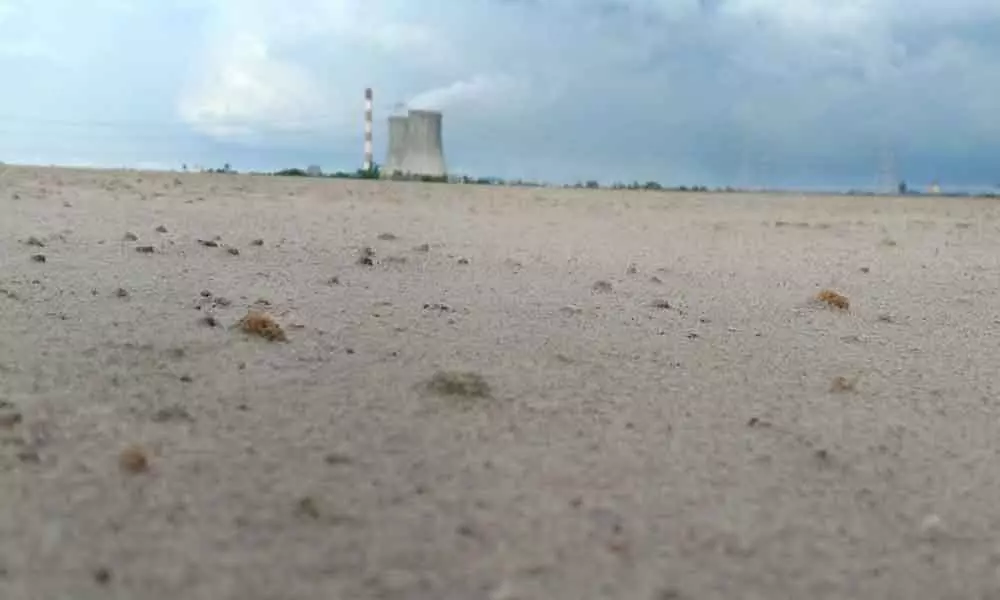Nellore fly ash finds huge demand in global market

Ash pond located in Muthukur mandal
Fly ash, a byproduct of coal used for power generation, is now seeing a huge demand in the international market
Nellore: Fly ash, a byproduct of coal used for power generation, is now seeing a huge demand in the international market. Thermal plants that normally face a difficult situation for clearing ash dumps after power generation are now heaving a sigh of relief as the stocks are having good demand. Now, they are exporting even to other countries too via Krishnapatnam Port.
Fly ash basically contains aluminium oxide, silica, and ferrous oxide which is generated in the combustion process of coal used in thermal power stations. It is used in concrete, mines, landfills and dams, AAC blocks, and bricks. As the fly ash is a very fine material, the particle size ranges in between 10 to 100 micron, when mixed with lime and water, it forms a compound similar to Portland cement.
This makes fly ash suitable as a prime material in blended cement, mosaic tiles, and hollow blocks, among other building materials. When used in concrete mixes, fly ash improves the strength and segregation of concrete and makes it easier to pump.
Fly ash has also been used as an embankment and mine fill, and it has increasingly gained acceptance by the Highways Authorities too.
In Nellore, around 4,200 megawatts of power is being generated from the two major plants on the daily basis. AP Genco's Sri Damodaram Sanjeevaiah Thermal Power Station is generating 1,600 mega-watts from its 2X800 megawatts units and SembCorp Energy India Limited is generating a total capacity of 2,640 megawatts from its 4X660 megawatts supercritical coal-fired units.
For instance, in 2019-20, about 70 percent or approximately 1.250 million tonnes of fly ash has been supplied by the SembCorp. The power plant achieved 100 pc of the utilisation of total ash for the period from October 2019 to March 2020, and it is the first Indian company to export fly ash to the USA, according to company sources.
APGenco is utilising 85 percent of ash, and SembCorp at 74 percent during the first half of 2019-20, as per reports of the Central Electricity Authority. Experts in the field say approximately 250 kg of fly ash get produced by burning 1 tonne of coal.
The ash has qualities of resistance to cold weather, high strength, usage as an admixture, non-shrink material, produces dense concrete with a smooth surface, reduces crack problems, permeability, and bleeding, reduces the heat of hydration, and allows for a lower water-cement ratio for similar slumps when compared to no-fly-ash mixes and finally it reduces CO2 emissions, said an official from the Genco plant.
Environmentalists say disposal of ash would lead to a healthier atmosphere in the region where the impact of pollution on farmlands would significantly reduce. It may be noted the studies conducted by farm scientists of Acharya NG Ranga Agricultural University revealed panicle initiation and flowering stages were also influenced by the fly ash deposition as compared to the active tillering stage.








